Gwent Police failed Carl Mills murder victims - reports
- Published
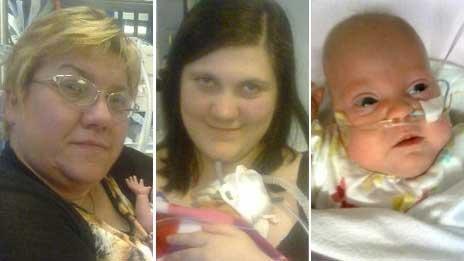
Kim, Kayleigh and Kimberley Buckley died in the fire
The murder of three people may have been prevented if police had checked the killer's background when complaints were made about him, a review says.
Gwent Police and social services have been criticised in three reports into Carl Mills, 28.
Kim Buckley, 46, Kayleigh, 17, and baby Kimberley died in Cwmbran in a house fire he started in September 2012.
Despite the criticism, police insisted Mills - jailed for 35 years - was "solely" responsible for the deaths.
However, in press conference on Thursday, Simon Burch, chief officer for social care and health at Monmouthshire council, said: "We once again offer our condolences to their family and friends.
"The report indentified several areas where service providers could and should have acted differently. Where we fell short, we sincerely apologise."
Homeless Mills, a heavy drinker originally from Bolton, Greater Manchester, was "incredibly controlling and jealous" and condemned his girlfriend, their daughter and Mrs Buckley to "an agonising death", the trial judge said.

Mills was 26 when he groomed 15-year-old Kayleigh
Three reports were published on Thursday - a Serious Case Review (SCR), a Domestic Homicide Review (DHR) and an investigation by the Independent Police Complaints Commission (IPCC).
The DHR said it was rare to say if matters had been handled differently the murders would not have happened, but added: "However, in this case, if the information in Bolton concerning Mills' history had been properly researched and considered... the risks would have been better understood and it is likely that action would have been taken that was more likely to protect [Kimberley, Kayleigh and Mrs Buckley] from the extreme act which caused their deaths."
Mills met Kayleigh on Facebook when she was 15 and he was 26. He groomed her and travelled to Wales to see her.
The report said that her mother became so worried she contacted Gwent Police and social services - as did teachers and, later, hospital staff.

The DHR said:
Mills's predatory, controlling and abusive behaviour was not recognised and addressed by the agencies as sexual exploitation and domestic abuse
No formal action was taken to prevent the abuse
No inquiries were made with agencies in Bolton
Expected processes and procedures were not followed effectively
Arrangements within Gwent Police for accessing information held by other forces were "inadequate"

Family friend Louise Davey said she hopes lessons will be learnt from the tragedy
Over the course of 21 months there were various child protection referrals and inquiries prompted by Mills's drunkenness, extreme jealousy and threatening behaviour.
The SCR also pinpointed a string of failings leading up to the murders, including at least 45 incidents of violence committed by Mills during his time in Bolton, including setting fire to his mother's bed and threatening her with knives.
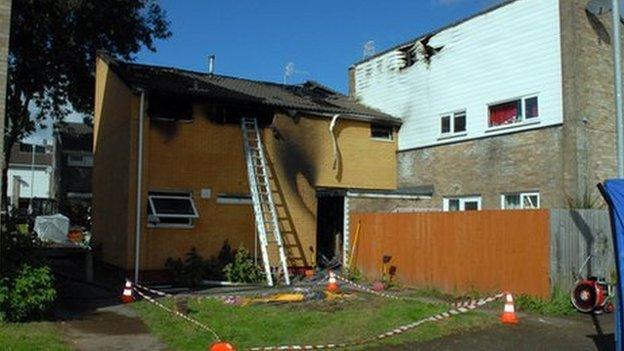
Neighbours attempted to rescue the family using a ladder
But initial checks by Gwent Police found "no trace" of previous convictions or involvement with police.
In December 2010, the force carried out more checks and told Mrs Buckley that Mills posed a "significant risk" because he had been to prison, but officers did not know why and, because he had not committed offences in Cwmbran, no action could be taken.
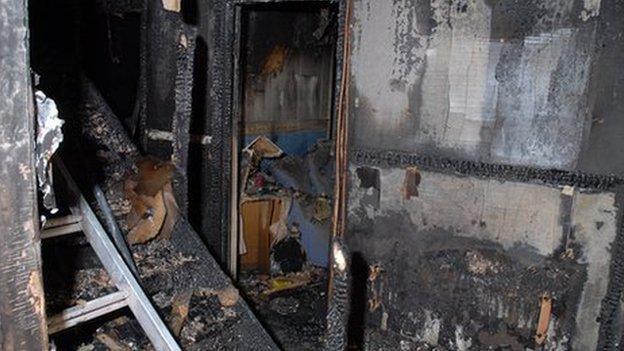
The house was gutted by the blaze
Gwent Police made a child protection referral to social services but Kayleigh refused to co-operate with staff.
When she turned 16, the report found, she was treated as being responsible for the choices she made.
In October 2011 she became pregnant with twins. Kayleigh miscarried one daughter in March 2012 and went on to have Kimberley, who was born 15 weeks early.
The little girl was deaf, blind and had chronic lung problems.
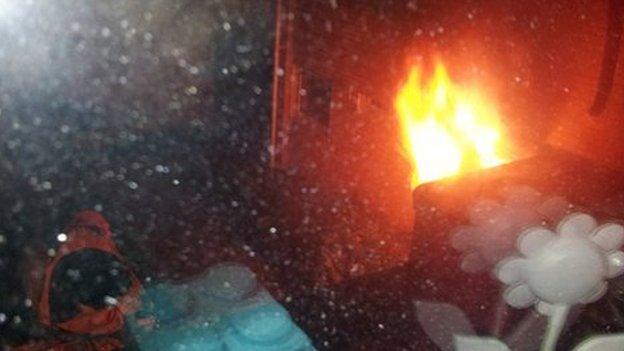
A neighbour took a picture of the fire during the early hours
Meanwhile, Mills continued to sleep rough in Cwmbran, which prompted officers to make further inquiries.
They found:
25 pages of offences of aggressive nature on record
Social services wanted to close the case until baby Kimberley was discharged from hospital
But it was hurriedly reopened in April 2012 when police discovered Mills's record included offences in Bolton relating to "firearms/weapons and threats to kill"
Three weeks before the murders, Mrs Buckley reported Mills for criminal damage and stealing her house keys, but the IPCC found this was not acted on by Gwent Police.
On 17 September 2012, Mrs Buckley and Kayleigh brought baby Kimberley home for the first time.
In the early hours of 18 September, Mills set fire to their home, stood outside and looked on as neighbours tried desperately to save them.
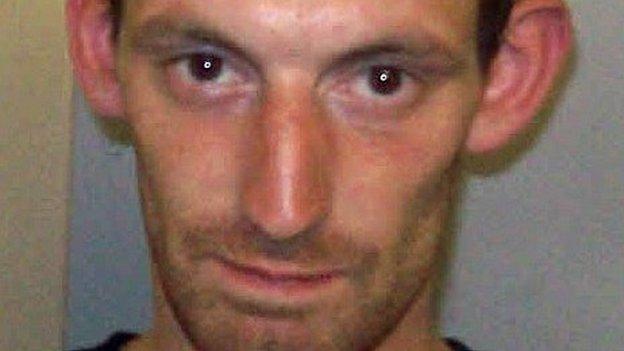
Mills was given a life sentence for the triple murder

Domestic Homicide Review:
The report made 13 recommendations, including:
Flagging up perpetrators who use fire as a weapon
Cultural changes towards domestic abuse
Mandatory training to ensure all staff have fit for purpose training
An adviser for young victims of domestic violence

The Serious Case Review:
The Home Office to review whether recommendations of the Bichard Inquiry, external have been implemented across the UK - where police officers can access information from other forces
Improvements in training for those on the frontline, including guidance that under-18s should be treated as children and not allocated an inappropriate level of responsibility

Jan Williams said Gwent Police let the Buckley family down
The IPCC:
A police constable did not identify Mills's escalating behaviour and criminal acts
He has been given a written warning as a result
A sergeant, who failed to supervise him properly, has been given management advice

'Missed chances'
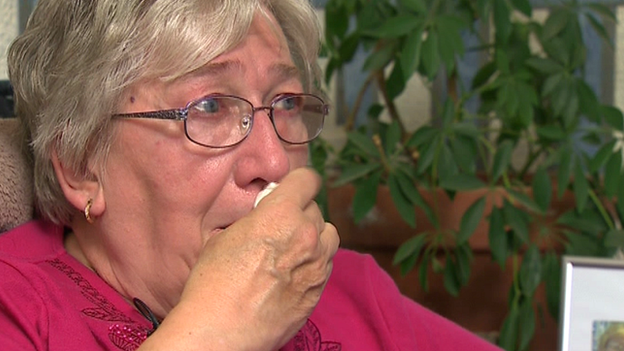
Gwyneth Swain, Mrs Buckley's mother, Kayleigh's grandmother and baby Kimberley's great-grandmother said:
"We want these reports to be used to stop anything like this ever happening again. Lessons must be learned from the many things that went wrong.
"Three members of my family should not have been killed by Mills. There were so many missed chances as the facts in these reports show."
- Published18 July 2013
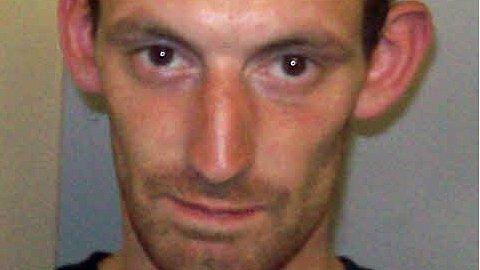
- Published18 July 2013

- Published15 July 2013
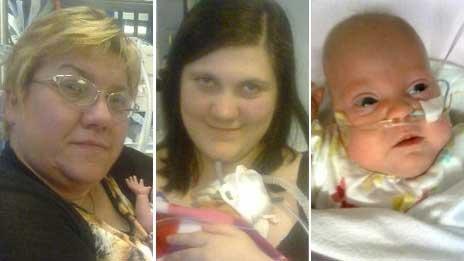
- Published18 July 2013

- Published11 July 2013

- Published8 July 2013

- Published5 July 2013

- Published2 July 2013
